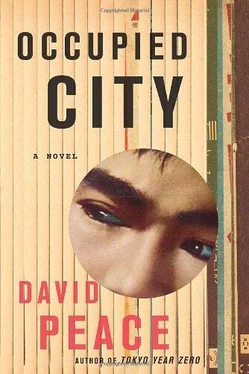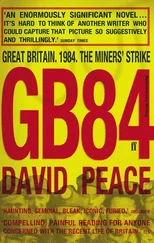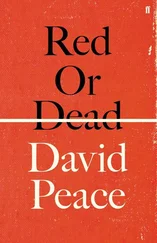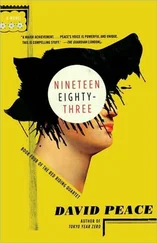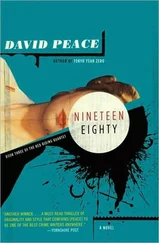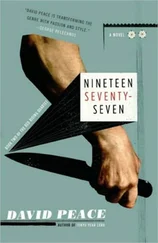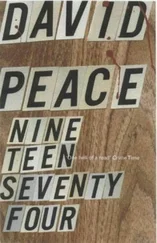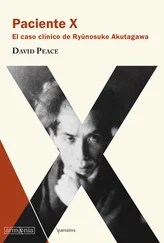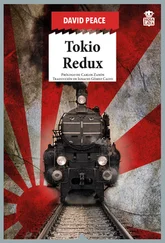And so I crawl on, I crawl on, through this city
This place, this purgatory, I crawl on
Beneath the Black Gate, in its upper chamber, on her hands and on her knees, she crawls towards the ten candles, in their occult circle, on her hands and on her knees, she crawls towards the third candle,
the third candle which gutters, gutters and then dies,
and she is gone, back into the shadows.
But in this occult circle, you are crawling now, among its nine candles, you are crawling, in the upper chamber of the Black Gate, on your hands and on your knees, crawling around, among the ruins,
the ruins of this city, the ruins of this book,
your book, your ruined
book; here where you fluctuate between despair and elation, despair at the death and destruction, elation at the death and destruction, here among the rivers of ink and the mountains of paper, the bonfires of words and the pits in the ground, the pits to be filled in with the ashes, the ashes from those bonfires,
the ashes of meaning.
But among these ashes and ruins, among this death and destruction, you do not crawl for long –
For now beneath the Black Gate, in this occult circle, a pair of trousers, a suit of clothes, are swinging from a beam, and now you look up and now you see, you see a white clay mask where a face should be, the white clay mask of a mouse, swinging back and forth, swinging forth and back, among strange balloons, among green crosses, and beneath the cuffs of its trousers, there sits the medium,
the medium who sits and who speaks,
speaks now and says:
‘I was a medical doctor. I was a bacteriologist. And I was a colonel. I served at Camp Detrick, the secret headquarters of the US Chemical Warfare Service in Maryland. My job was to develop BW defensive measures and devise means for offensive retaliation in case of a biological attack against the United States or its combat forces. From 1943 to 1945 I was responsible for research into bacteriology, virology, medicine, pharmacology, physiology and chemistry. My job was to find out how diseases were passed from person to person, especially those diseases which can be transferred to man by rats, by fleas, by ticks, by lice or by mosquitoes. That was my job.
‘And it was a dangerous job.
‘During our exploration of brucellosis, my entire team succumbed to it. The same with tularemia. There were casualties in the workshop. Many of my fellow scientists succumbed.
‘Many of my fellow scientists died.
‘And many, many went mad.
‘But it was a race against time because we knew the Germans, the Soviets and the Japanese were already ahead of us in the game.
‘Especially the Japs. For we knew, even then, we knew –
‘For in 1944, I was called into the office of the Scientific Director, Dr Oram C. Woolpert; Intelligence had received news of Jap germ warfare attacks on the Chinese in Manchuria –
‘Tommy, we think they’ve killed a lot of people,’ he told me. ‘We think they’ve been poisoning reservoirs, poisoning wells …’
‘So we knew, even then, we all knew.
‘Then, in the Summer of 1945, General MacArthur personally requested that I join him in Manila to await the coming assault on the Japanese mainland. So I flew to Manila. I went straight to MacArthur’s headquarters. I met with General MacArthur, General Charles Willoughby and Karl T. Compton. I had met Compton before. I knew he was the former president of the Massachusetts Institute of Technology, that he was a civilian who wore the three stars of a lieutenant general, the chief of Scientific Intelligence. I had not met Willoughby before. But I knew he was the head of G-2, US Military Intelligence. And I had not met General MacArthur before. But I immediately liked him. I immediately respected him. He knew the weight of the responsibility he was carrying. He also knew the dangers of BW. The General asked me what I thought. He asked me what I feared. He listened to me and then the General said –
‘We need you very badly here, Tommy.’
‘Then they told me about Operations Olympia and Coronet, the planned land, sea and air assaults on the Japanese home islands. They told me I would go ashore at H plus 6; H plus 6 meant six hours after the first bombardment; H plus 6 meant the very first wave of assault troops –
‘Be careful not to break your test tubes, Tommy,’ laughed the General. And so I waited. And I waited.
‘But H plus 6 never came.
‘The first bomb was dropped on August 6, the second bomb on August 9, and the Japs surrendered on August 15. But I was already on my way to Japan aboard the USS Sturgis . For I had been given a new mission. This time I had been well briefed.
‘This time they had knocked. This time they had introduced themselves. They told me they were from G-2. They told me they were from Scientific Intelligence. They said I was the top man in biological warfare. They said I was needed in Japan. My mission was to find out as much as I could, and as quickly as I could, about the Jap biological warfare programme. About Unit 731. About Unit 100.
‘About Shirō Ishii; they told me to find Ishii.
‘But the Japs had been told about me.
‘The Japs were waiting for me …’
And now a bundle of envelopes, a heavy, heavy wad of envelopes bound and tied with another length of rope, a thick, thick cord, falls from a dead pocket of the swinging suit and now you crawl, on your hands and on your knees, into the centre of the occult circle and you tear open these heavy, heavy envelopes and pull out a thick, thick wad of papers, and by the light of the nine candles, in the upper chamber of the Black Gate, you read through these papers, these papers that are half-letters / half-documents, sometimes hand-scrawled / sometimes type-written, but always tear-stained and already blood-blotted, you read, always tear-stained and already blood-blotted, among strange balloons, among green crosses,
you read, stained and blotted, you are
among strange balloons, among
green crosses, always stained,
already blotted …
The Fourth Candle — The (Dead) Letters of an American
Marked PERSONAL
Dai-Ichi Hotel, Tokyo, Japan
September 18, 1945
My dearest Peggy ,
I hope this letter finds you & the children all well .
I am well, so please do not worry about me (even though I know you do). I am only sorry that I have not been able to write to you sooner, but work has been very busy since I left Manila .
I doubt I will ever forget my first sight of Japan’s coastline. It stretched before us like a long thin line of green earth with a thin line of white surf. It looked peaceful & un-peopled — no smoking chimneys, or trains, or traffic. Of course, it was an illusion!
We finally docked in Japan at Yokohama on August 21st & from day one I have found this to be a very strange place & the Japs to be a very strange people. Of course, their country is completely hurt & ruined in a way that is unimaginable to people back home. Our bombing of Tokyo, & I suppose of most other cities, certainly hit the Japanese home, right where the average man would feel it most. One can hardly believe the reports in American papers that the Japs do not know they lost the war. The evidence of it is everywhere, inescapable, & in many respects permanent. There are places here where, as far as one can see, lies only miles of rubble. Some temples & museums are gone for good, & the rest will take decades to restore. The ordinary people look ragged & distraught. They remind me of timid mice (but there are others among them who are as sharp as rats). The children are the friendliest .
Читать дальше
